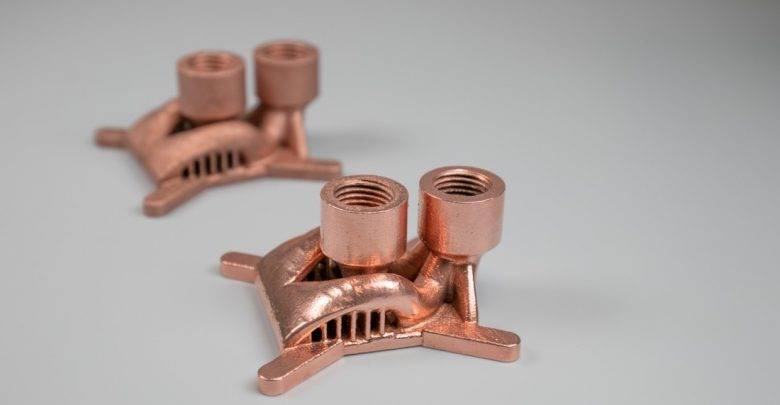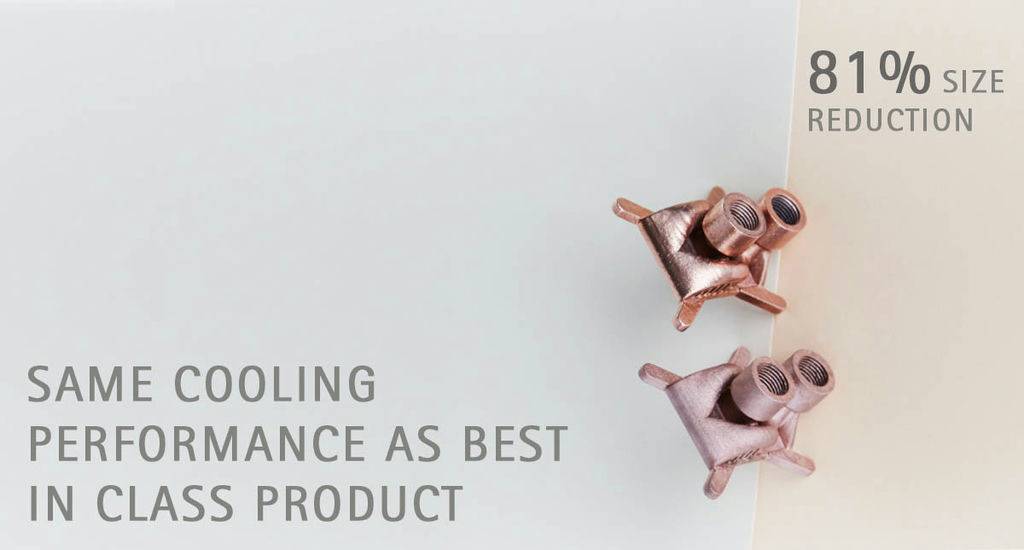The future of thermal management
Excess heat limits the miniaturization of portable computers, power electronic devices and high-power LED lighting. Ambitious technological solutions from the lab are often not yet ready for mass production and deployment in consumer products. Industrial 3D printing, so called additive manufacturing, of thermal management solutions can bridge the gap and keep lossy electronics cool even when the available space is severely limited. Due to the freedom of design, 3D printed thermal management components offer the same or superior effectiveness as conventionally manufactured components but require far less space. Enlarged surfaces, any-shape geometries and conformal cooling channels are opportunities of this manufacturing technology.

AM Metals, TheSys and EOS have teamed up to develop a gaming CPU cooler and demonstrate how the
future of thermal management will look.
Gaming CPU cooling requiring 81% less space
We see that excess heat limits the miniaturization of high performance computers, e.g. for gaming or
design works. But how to overcome this obstacle?
Equipped with state-of-the-art additive manufacturing and material technology, AM Metals’ application development specialists created an innovative design that can match the best-in-class gaming CPU cooler. Thermal solutions specialist TheSys carried out thermal simulations that served as the basis for an improved version of the cooler. With only one iteration, we came up with a design that meets the target cooling performance. The design was realized on an EOS M290 machine in a matter of hours.
The result is a CPU cooler which operates at the same cooling performance but requires 81% less space than the original design.
This is an enormous improvement in a very modest development time. Besides CPU coolers there are countless applications where space for heat transfer is a premium. Take high power LEDs, Lasers, autonomous driving, power electronics, chemical micro reactors. We believe that additive manufacturing can bridge the gap between current market demands for miniaturized thermal management solutions and future technologies that might circumvent the problem in a fundamental way.
Senior Business Development Manager at EOS,
Matthias is scouting applications and developing business models for industrial 3D printing. One of his focus topics is thermal management innovations. As a senior business developer manager he is responsible for developing holistic solutions to realize the business ideas of EOS' customers.
In his early career Matthias was trained as a physicist and spent four years as a researcher at Heidelberg University, Germany. He then joined Konica Minolta as a product manager, responsible for in-line test systems in electronics manufacturing. Since more than 15 years he is also active as an entrepreneur in various fields. In 2016 Matthias entered the world of industrial 3D printing and joined EOS.


